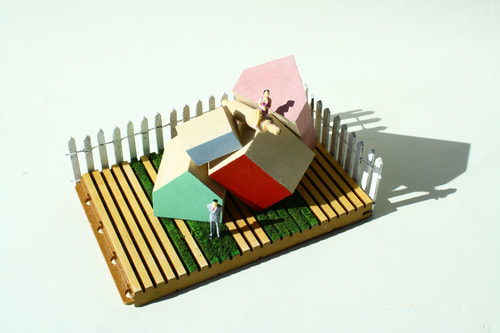The Benefits of Art Education
"Art washes away from the soul the dust of everyday life."
- Pablo PIcasso
Why do you need an art education?
- A 2005 report by the Rand Corporation called " A Portrait of the Visual Arts" argues that art education does more than just give students a creative outlet. It can actually help connect them to the larger world, ultimately improving community cohesion. http://www.rand.org/content/dam/rand/pubs/monographs/2005/RAND_MG290.pdf
- A 2002 report by the Arts Education Partnership revealed that school children exposed the arts are often more proficient at reading, writing and math. http://usatoday30.usatoday.com/news/education/2002-05-20-arts.htm
- The 2006 Solomon R. Guggenheim Museum Study on Art Education shows a link between Art Education and improved literacy skills. http://www.nytimes.com/2006/07/27/books/27gugg.html?_r=0
- A 2010 study of Missouri Public schools in found that greater arts education led to fewer disciplinary infractions, higher attendance, graduation rates and test scores. https://www.missouriartscouncil.org/graphics/assets/documents/b657d9f1adfc.pdf
- In "Neuroeducation: Learning, Arts and the Brain," Johns Hopkins Researchers shared findings showing that arts education can help rewire the brain in positive ways. http://www.dana.org/Publications/ReportDetails.aspx?id=44335
- A strong arts education offers students experience in "risk management" through the practice of making independent decisions regarding creative outcomes. http://artsedge.kennedy-center.org/champions/pdfs/champsreport.pdf
What do the arts have to do with my future?
There is a lot of research to support the idea that students who spend time learning about the arts are more likely to be successful in higher education, but are also more likely to hold gainful employment and volunteer in their communities. Here are some powerful facts from Americans for the Arts:
|
How do I fit the arts into my schedule?
|
Most students at Redwood find it a challenge to fit electives choices into an already busy schedule. How can you make room for the arts? Teachers, counselors and your peers will all have their own advice. Just make sure you understand the facts and what is right for your skills and interests. Colleges are looking for evidence of passion and genuine interests, alongside academic rigor. This means your class choices will be not be the same as everyone else. Getting beyond the one year requirement will allow you to find out what that means.
|
*Find out more about what an arts education can offer by learning about our past students' successes on the Alumni page.



